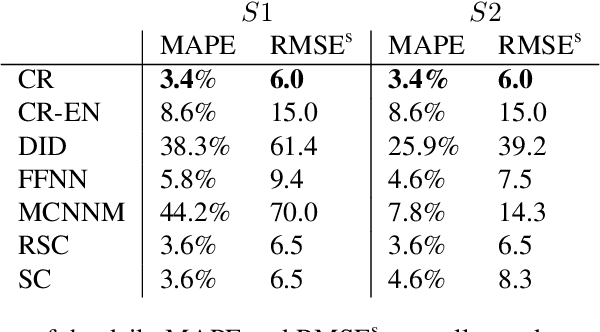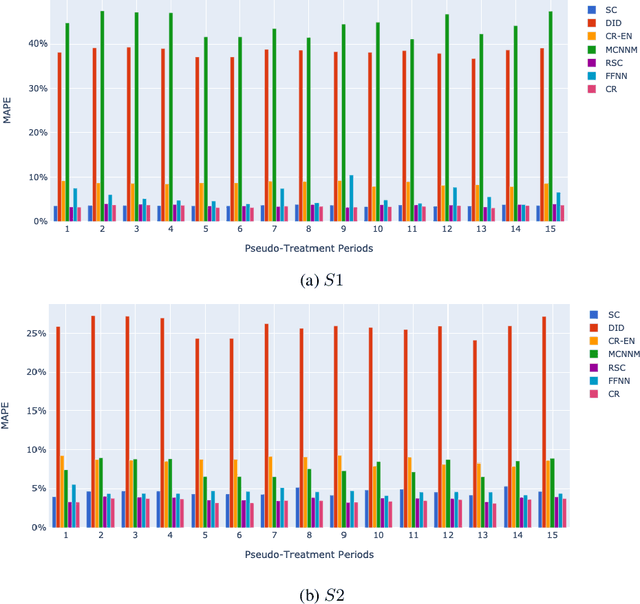Estimating the Impact of an Improvement to a Revenue Management System: An Airline Application
Paper and Code
Jan 13, 2021



Airlines have been making use of highly complex Revenue Management Systems to maximize revenue for decades. Estimating the impact of changing one component of those systems on an important outcome such as revenue is crucial, yet very challenging. It is indeed the difference between the generated value and the value that would have been generated keeping business as usual, which is not observable. We provide a comprehensive overview of counterfactual prediction models and use them in an extensive computational study based on data from Air Canada to estimate such impact. We focus on predicting the counterfactual revenue and compare it to the observed revenue subject to the impact. Our microeconomic application and small expected treatment impact stand out from the usual synthetic control applications. We present accurate linear and deep-learning counterfactual prediction models which achieve respectively 1.1% and 1% of error and allow to estimate a simulated effect quite accurately.
 Add to Chrome
Add to Chrome Add to Firefox
Add to Firefox Add to Edge
Add to Edge